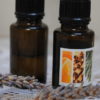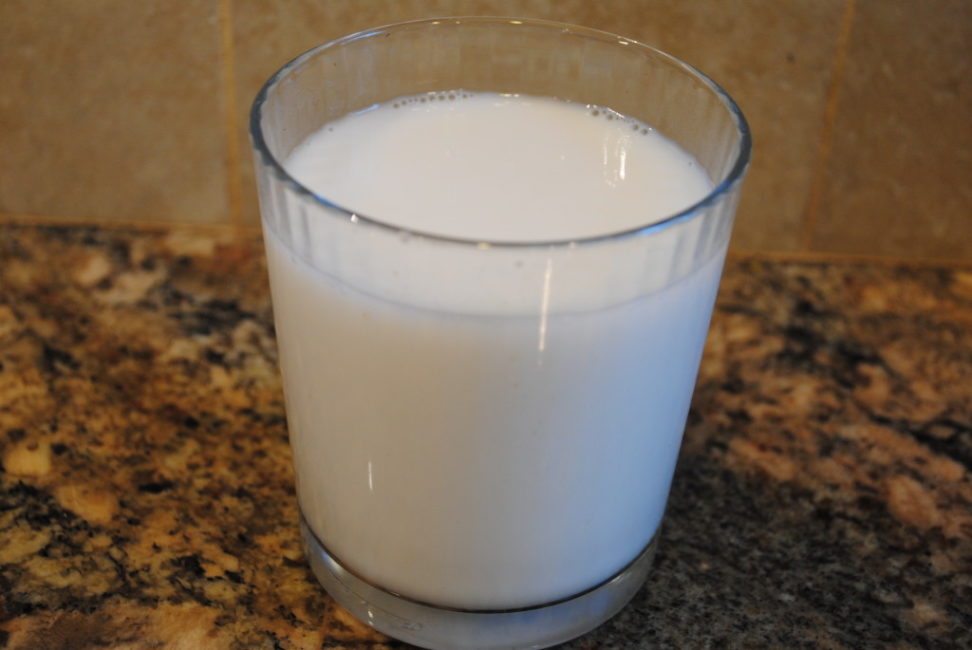I recently read a couple of really good articles about calcium that I thought I would share with you. Getting enough calcium seems to be on the minds of many these days. Yet why is this a tough question? In some instances calcium intake has become controversial? Too much calcium has been said to increase heart problems and kidney stones. On the other hand we are told to take supplements to make sure we are getting enough to prevent osteoporosis. Well, what is enough? It is recommended we get somewhere between 1000 and 1200 mg a day. Getting above 1200 mg a day seems to increase your risk of getting kidney stones. Too much of anything usually isn’t a good thing anyway. However, if you are taking a supplement, you should consider the amount of calcium you are getting from your food. Most people do not need to take much supplemental calcium if they are getting a lot from their food.
Dairy is not the only place one can get calcium nor is it necessarily the best. There are many fortified sources like orange juice, tofu and non-dairy milks that contain added calcium. Getting your calcium from these sources is actually considered getting your calcium from a supplement source. Foods that contain the most calcium include but are not limited the following: salmon with bones, canned sardines, collard greens, spinach, almonds, bok choy, white beans, black beans, kale, edamame, broccoli, turnip greens and sesame seeds.
Besides calcium, there are other important nutrients that contribute to bone health. Most people have heard of the importance of vitamin D but other minerals needed for bone health are Magnesium (found in nuts, seeds, beans, whole grains, spinach and potatoes) Vitamin K (found in asparagus, kale, swiss chard, spinach and prunes) Potassium (found in sweet potatoes, bananas, lentils, beans, dried apricots, avocados, winter squash) Vitamin B12 (found in fortified foods and animal products, if vegetarian or vegan from supplements) Vitamin C (found in fruits and veggies)
But what you eat is as important as what you don’t eat. If you eat too much salt your body can leach calcium because as your kidneys eliminate salt, it tends to carry calcium with it. Soda, diet or regular, can weaken bones. It is thought that the phosphoric acid found in soda can leach calcium from your bones (not to mention all the sugar you take in). Excessive caffeine can be a problem for healthy bones too. Also, there is growing evidence that eating a lot of foods that create acids in the body can lead to bone breakdown. Your bones are like a library that stores alkali minerals, calcium being a major one. Thus your bones act like a buffer to neutralize acids created when breaking down foods we eat, releasing calcium into the body. It’s not actually the foods themselves that are acidic but the compounds resulting from the breakdown of the foods. Those foods highest in acidic breakdown are animal products, processed foods and some grains. This doesn’t mean you should avoid them (well you should avoid processed foods for sure), but care is needed to balance your diet with plenty of fruits and vegetables which breakdown to become alkali. So be mindful of how much calcium you are getting from your food when choosing a supplement and eat your fruits and vegetables!
References:
Bess Dawson-Hughes Director of Bone Metabolism Laboratory at USDA Human Nutrition Research Center in Nutrition Action Healthletter December 2014.
Matthew Kadey, RD in an article Good to the Bone from Vegetarian Times June 2014.



![z31[1]](https://simplywholebydevi.com/wp-content/uploads/2018/06/z311-100x100.jpg)












